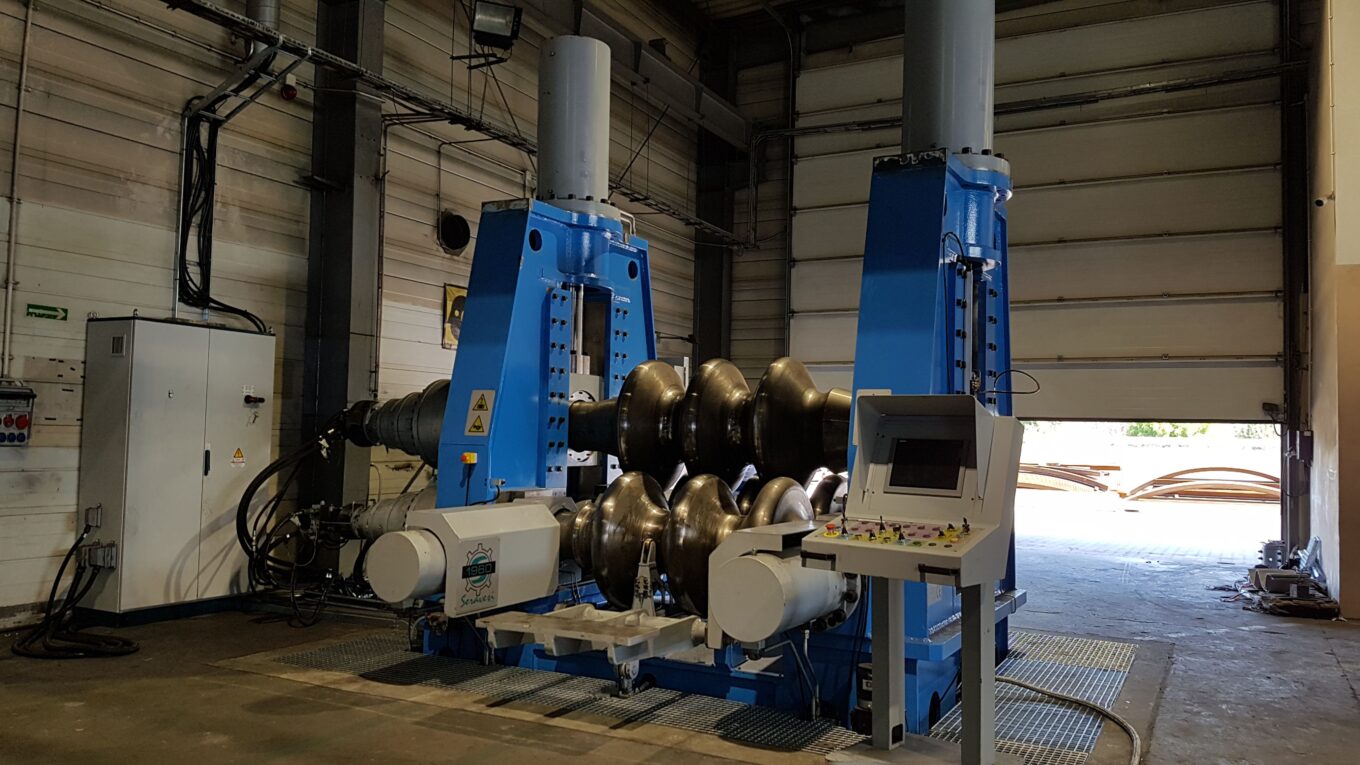Special Plate Rolling Machines: Precision Engineering for Complex Projects
In today’s fast-evolving manufacturing environment, precision and customization are key to staying competitive. That’s why custom-engineered solutions for advanced plate rolling and complex metal forming have become essential tools in modern fabrication. Unlike standard plate rollers, these advanced machines are engineered to handle unique and complex shaping tasks. Whether it’s forming thicker materials, creating non-standard curves, or adapting to high-performance alloys, special plate rolling machines provide the flexibility and accuracy required across a range of industries—from shipbuilding and aerospace to renewable energy and architecture.
What Sets Special Plate Rolling Machines Apart?
The defining feature of Special Plate Rolling Machines is their ability to perform tasks that traditional machines cannot handle. While standard plate rollers are limited to uniform materials and basic geometries, special machines are designed for versatility. They often include CNC integration, advanced hydraulics, and customized roll configurations to accommodate a wider range of thicknesses, widths, and material types.
These machines are also built to meet high tolerance requirements, making them suitable for critical applications such as pressure vessels or structural steelwork. With added precision and control, fabricators can achieve consistent results even on highly complex or low-volume projects.
Industrial Applications of Special Plate Rolling Machines
Special Plate Rolling Machines are widely used across sectors that require high strength, durability, and custom design. In the energy industry, they are crucial for shaping components like wind turbine towers, pipelines, and boilers. Aerospace companies rely on these machines to form lightweight but strong fuselage sections, while the marine industry uses them for rolling ship hull plates with precise curvature.
Architectural projects also benefit from these machines, especially when building curved façades, domes, or artistic steel elements. Their ability to work with a wide range of materials—including stainless steel, aluminum, and exotic alloys—makes them indispensable in environments where both form and function matter.
Efficiency Gains with Special Plate Rolling Machines
One of the biggest advantages of Special Plate Rolling Machines is the improvement in operational efficiency. With features such as programmable bending sequences, digital displays, and automated calibration, these machines reduce manual intervention and minimize errors. Operators can set up complex rolling tasks quickly, reducing downtime between jobs.
This leads to faster production cycles, less material waste, and more consistent quality. Especially in high-stakes manufacturing, the ability to reliably reproduce parts is crucial for reducing rework and meeting strict delivery timelines.
Custom Fabrication Solutions with Special Plate Rolling Machines
Modern projects often demand tailor-made components, and Special Plate Rolling Machines rise to the occasion. These machines can be customized with support arms for large-diameter cylinders, heat-assisted rolling systems for difficult metals, and asymmetric roll setups for non-standard shapes.
Such adaptability is key for businesses that serve industries with constantly evolving requirements. Whether it’s a one-off prototype or a limited production run, fabricators can meet client expectations without needing additional equipment or extensive tooling changes.
Choosing the Right Special Plate Rolling Machines
Investing in Special Plate Rolling Machines requires careful consideration of current needs and future scalability. Buyers should assess factors such as material types, thickness capacity, production volume, and desired shapes. It’s also important to evaluate the machine’s level of automation, ease of use, and support services offered by the manufacturer.
A good machine will not only perform reliably under existing workloads but will also be flexible enough to accommodate new projects as business demands evolve. Companies that choose the right model can expect long-term value, reduced maintenance issues, and better return on investment.
Special Plate Rolling Machines represent a powerful blend of precision, efficiency, and customization in metal forming. Their advanced features and broad application range make them a valuable asset for manufacturers looking to expand their capabilities and improve productivity. As industries continue to push boundaries and demand more specialized solutions, these machines will remain at the forefront of fabrication technology. For companies aiming to deliver high-quality, complex metal products, investing in special plate rolling machines is not just a smart move—it’s a strategic necessity.
